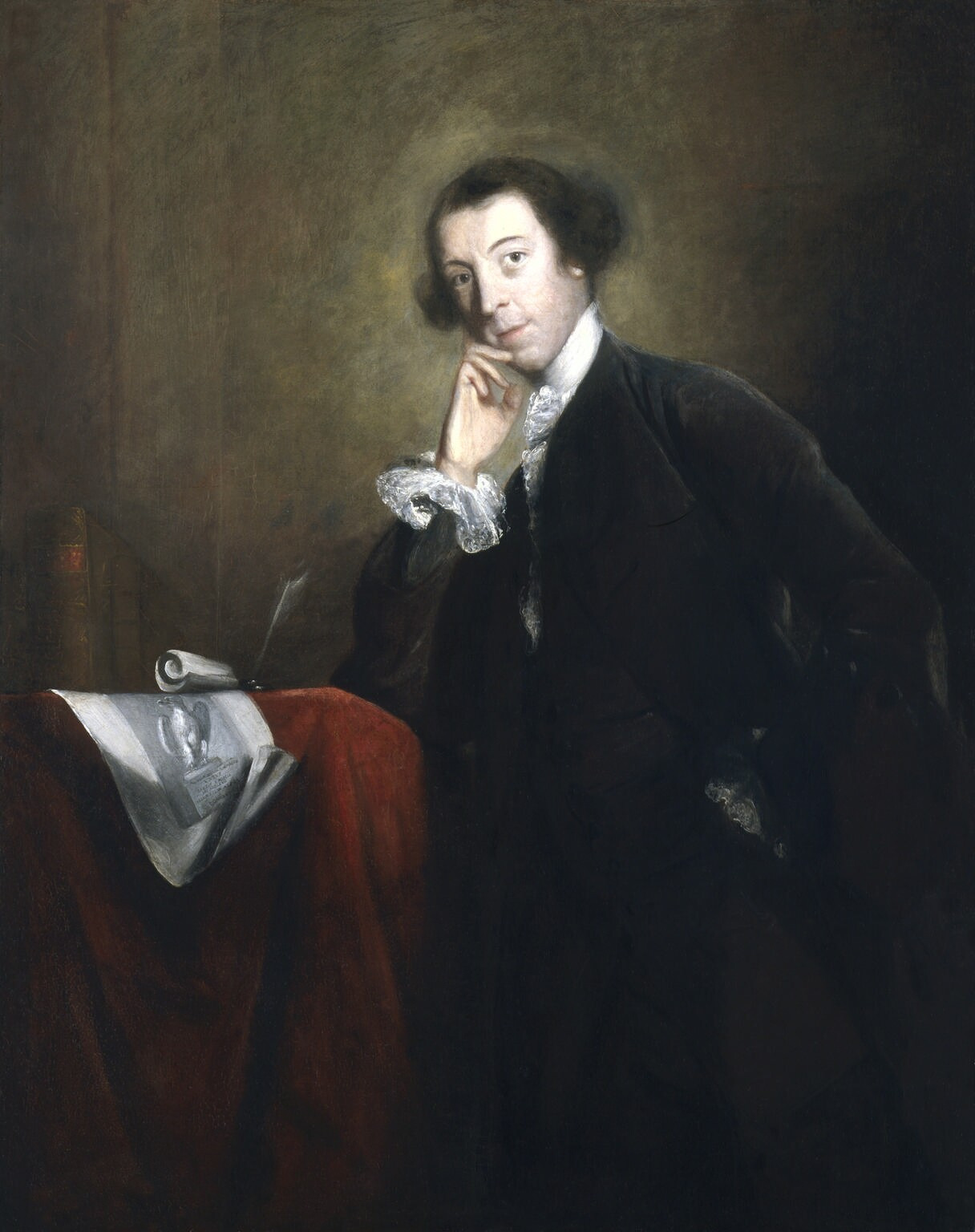July 1757 Heatwave on:
[Wikipedia]
[Google]
[Amazon]
A very significant
2003 Likely Europe's Hottest in 500 Years
''
Paris en Dates Et en Chiffres
p. 179 (in French, noting that 2003 was the hottest since 1757) July 1757 was the hottest month in the history of Paris with an average temperature of (compared to 24.8 °C during theMeteorology Office

 There were contemporaneous accounts of the heat wave noting its effects. Physician
There were contemporaneous accounts of the heat wave noting its effects. Physician
''Phil. Trans.'' 1757-1757 50, 523, 524 Huxham reports on the effects in England, writing that it caused "haemorrhages from several parts of the body", including the nose, and the uterus in women. Among other maladies, Huxham described "sudden and violent pains of the head, and vertigo, profuse sweats, great debility and oppression of the spirits, affected many. There were putrid fevers in great abundance." Symptoms consistent with dehydration described by Huxham included that "the urine was commonly high colored, and in small quantity."Remarks on the Heats of July 1757
''The London Magazine'', pp. 563–64 (November 1758)
pp. 89–90 (John Grant 1906) Other reports include a letter from
Letter
''
Ireland
''
Notes
''Nature'' p. 415 (making references to heat in St. Petersburg in 1757 as compared to hot summer of 1882) Quaker poet
Quaker poet
Four elegies, descriptive and moral
(1760) It included stanzas such as "Lost is the lively Aspect of the Ground; Low are the Springs, the reedy Ditches dry; No verdant Spot in all the Vale is found; Save what yon Stream's unfailing Stores supply."Four elegies descriptive and moral (review)
''The Monthly Review'' (London) (July 1760) Whether or not Walpole was correct that the 1757 heat wave would be long discussed, it has not been the subject of much subsequent discussion or writing, aside from occasional reprints of accounts such as Huxham's. When the 2003 European heat occurred, the earlier event was noted in the press as holding the prior record.
heat wave
A heat wave or heatwave, sometimes described as extreme heat, is a period of abnormally hot weather generally considered to be at least ''five consecutive days''. A heat wave is usually measured relative to the usual climate in the area and ...
occurred in Europe in July 1757. The heat wave may have been the hottest summer in Continental Europe
Continental Europe or mainland Europe is the contiguous mainland of Europe, excluding its surrounding islands. It can also be referred to ambiguously as the European continent, – which can conversely mean the whole of Europe – and, by som ...
between the summers of 1540
Year 1540 ( MDXL) was a leap year starting on Thursday of the Julian calendar.
Events
January–March
* January 6 – King Henry VIII marries Anne of Cleves, his fourth Queen consort; the marriage lasts six months.
* February 1 ...
and 2003
2003 was designated by the United Nations as the International Year of Fresh water, Freshwater.
In 2003, a Multi-National Force – Iraq, United States-led coalition 2003 invasion of Iraq, invaded Iraq, starting the Iraq War.
Demographic ...
.Recer, Paul (4 March 2004)2003 Likely Europe's Hottest in 500 Years
''
The Washington Post
''The Washington Post'', locally known as ''The'' ''Post'' and, informally, ''WaPo'' or ''WP'', is an American daily newspaper published in Washington, D.C., the national capital. It is the most widely circulated newspaper in the Washington m ...
'' (Associated Press)Prigent, SergeParis en Dates Et en Chiffres
p. 179 (in French, noting that 2003 was the hottest since 1757) July 1757 was the hottest month in the history of Paris with an average temperature of (compared to 24.8 °C during the
2006 European heat wave
The 2006 European heat wave was a period of exceptionally hot weather that arrived at the end of June 2006 in certain European countries. The United Kingdom, Ireland, France, Belgium, the Netherlands, Luxembourg, Italy, Poland, the Czech Republic ...
), and it reached a high of on 14 July. Similarly, over Central England
The Midlands is the central region of England, to the south of Northern England, to the north of southern England, to the east of Wales, and to the west of the North Sea. The Midlands comprises the ceremonial counties of Derbyshire, Herefordshi ...
, July 1757 was the hottest month on record since 1659, at the time, and would not be beaten until July 1783. It still is the ninth-warmest on record in that series.Accounts

 There were contemporaneous accounts of the heat wave noting its effects. Physician
There were contemporaneous accounts of the heat wave noting its effects. Physician John Huxham
John Huxham (1692–1768) was an English physician, a provincial doctor notable for his study of fevers. In 1750 Huxham published his ''Essay on Fevers'' and in 1755 received the Copley Medal for his contribution to medicine.
Biography
Huxham ...
wrote ''An Account of the Extraordinary Heat of the Weather in July 1757, and the Effects of It'', which appeared in the ''Philosophical Transactions of the Royal Society
''Philosophical Transactions of the Royal Society'' is a scientific journal published by the Royal Society. In its earliest days, it was a private venture of the Royal Society's secretary. It was established in 1665, making it the second journ ...
'' in 1758.An Account of the Extraordinary Heat of the Weather in July 1757, and the Effects of It''Phil. Trans.'' 1757-1757 50, 523, 524 Huxham reports on the effects in England, writing that it caused "haemorrhages from several parts of the body", including the nose, and the uterus in women. Among other maladies, Huxham described "sudden and violent pains of the head, and vertigo, profuse sweats, great debility and oppression of the spirits, affected many. There were putrid fevers in great abundance." Symptoms consistent with dehydration described by Huxham included that "the urine was commonly high colored, and in small quantity."Remarks on the Heats of July 1757
''The London Magazine'', pp. 563–64 (November 1758)
Horace Walpole
Horatio Walpole, 4th Earl of Orford (; 24 September 1717 – 2 March 1797), better known as Horace Walpole, was an English Whig politician, writer, historian and antiquarian.
He had Strawberry Hill House built in Twickenham, southwest London ...
wrote a letter on 12 July 1757 noting "the heat of this magnificent weather, with the glass up to three-quarters of sultry." He also commented that on walking his garden, "I thought I should have died of it" and exclaimed: "For how many years we shall have to talk of the summer of fifty-seven!" Four days later he remarked in another letter that "the weather has been so hot, and we are so unused to it, that nobody knew how to behave themselves. Even Mr. Bentley has done shivering."The Letters of Horace Walpole, Volume 3pp. 89–90 (John Grant 1906) Other reports include a letter from
Brussels
Brussels, officially the Brussels-Capital Region, (All text and all but one graphic show the English name as Brussels-Capital Region.) is a Communities, regions and language areas of Belgium#Regions, region of Belgium comprising #Municipalit ...
which appeared in the ''London Chronicle
The ''London Chronicle'' was an early family newspaper
A newspaper is a Periodical literature, periodical publication containing written News, information about current events and is often typed in black ink with a white or gray background ...
'', claiming that the temperature on 14 July reached "a Degree of Heat which hath not been felt in this Country for many years,"(July 23–26, 1757)Letter
''
London Chronicle
The ''London Chronicle'' was an early family newspaper
A newspaper is a Periodical literature, periodical publication containing written News, information about current events and is often typed in black ink with a white or gray background ...
'', p. 88, col. 1 and a report from Dublin
Dublin is the capital and largest city of Republic of Ireland, Ireland. Situated on Dublin Bay at the mouth of the River Liffey, it is in the Provinces of Ireland, province of Leinster, and is bordered on the south by the Dublin Mountains, pa ...
calling it the warmest summer in Ireland
Ireland (, ; ; Ulster Scots dialect, Ulster-Scots: ) is an island in the North Atlantic Ocean, in Northwestern Europe. Geopolitically, the island is divided between the Republic of Ireland (officially Names of the Irish state, named Irelan ...
in the past 35 years.(July 21–23, 1757)Ireland
''
London Chronicle
The ''London Chronicle'' was an early family newspaper
A newspaper is a Periodical literature, periodical publication containing written News, information about current events and is often typed in black ink with a white or gray background ...
'', p. 78, col. 3(24 August 1882)Notes
''Nature'' p. 415 (making references to heat in St. Petersburg in 1757 as compared to hot summer of 1882)
 Quaker poet
Quaker poet John Scott of Amwell
John Scott (9 January 1731 – 12 December 1783), known as Scott of Amwell, was an English landscape gardener and writer on social matters. He was also the first notable Religious Society of Friends, Quaker poet, although in modern times he is ...
wrote of the heat wave in his 1760 ''Four Elegies: Descriptive and Moral,'', with Elegy II "written in the hot weather, July, 1757."ScottFour elegies, descriptive and moral
(1760) It included stanzas such as "Lost is the lively Aspect of the Ground; Low are the Springs, the reedy Ditches dry; No verdant Spot in all the Vale is found; Save what yon Stream's unfailing Stores supply."Four elegies descriptive and moral (review)
''The Monthly Review'' (London) (July 1760) Whether or not Walpole was correct that the 1757 heat wave would be long discussed, it has not been the subject of much subsequent discussion or writing, aside from occasional reprints of accounts such as Huxham's. When the 2003 European heat occurred, the earlier event was noted in the press as holding the prior record.
July 1757 Paris temperatures
References
{{portalbar, Europe, Weather Heat waves in Europe 1757 in Europe 1750s natural disasters 1757 disasters